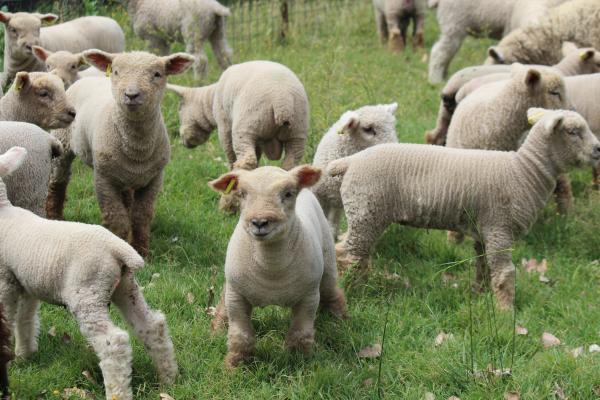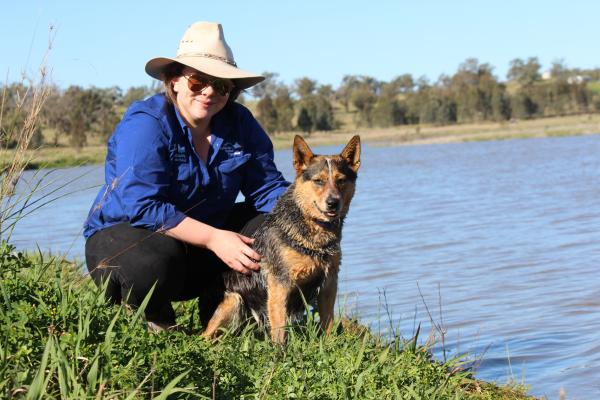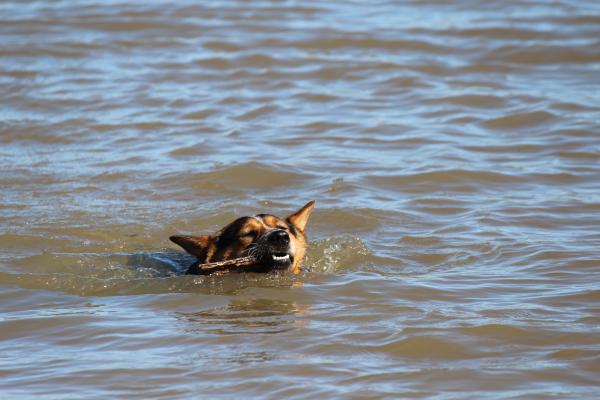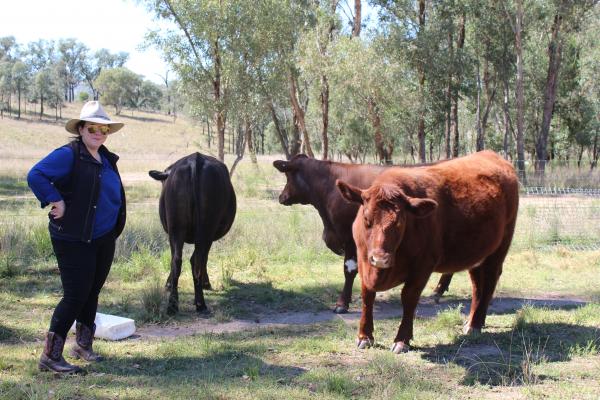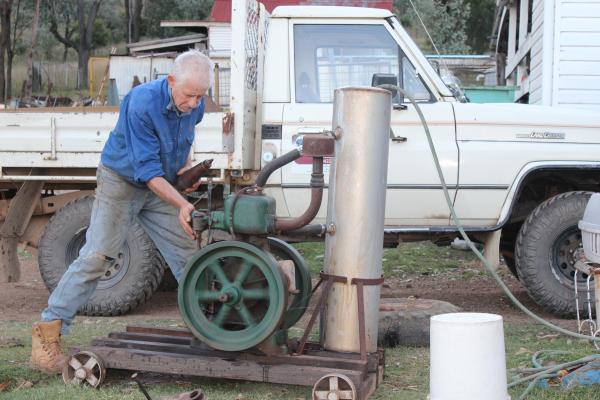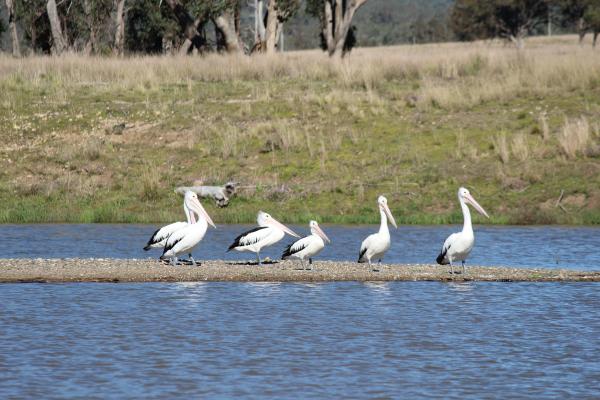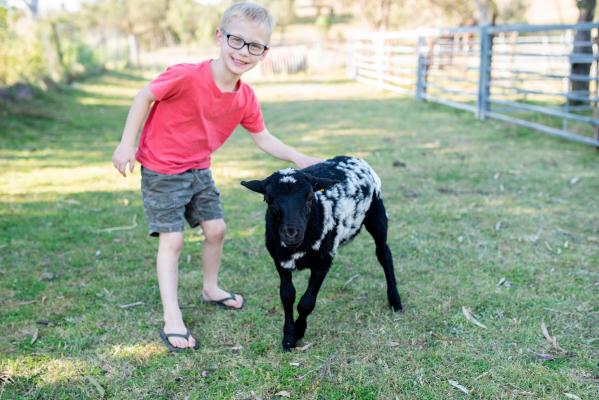By Judy Barnet, Ag Columnist
Farming is always full of ups and downs and this week was no exception. I put a couple of ewes and their lambs in the Garden Paddock a few days ago as the lambs were fly-struck on their tails. The lambs were treated daily and were soon ready to be let out. This morning I brought some feed to them to entice them but had only walked a few steps when I discovered lamb 639 dead as a door nail. 639 was out of 16, a very old ewe that was due to be culled, so I had been delighted when the old girl had twin ewe lambs two weeks ago. However one died soon after birth and now she has lost the second. What was the cause? I really don’t know – the tail was healing nicely, she was fat and healthy looking when I fed the ewes on Saturday evening. On top of this, a poddy lamb that I have mentioned in previous editions had stopped drinking. If she has nine lives she has already used up three by the tender age of six weeks!
Recently a local sheep farmer with a big flock mentioned to me he had lost lambs prior to marking and believed it was most likely pulpy kidney so on that basis I have decided to vaccinate all of the lambs that are three weeks and older. Usually I would wait until the youngest lamb was three weeks old but with a dozen ewes still to lamb I don’t want to risk waiting. Normally my lambing would be completed within eight weeks but the main ram I used this year – the great Gatsby – was a bit fat and lazy I think, and it took him a while to get around all the ewes.
CJ took over feeding the chooks when she arrived and for the last couple of weeks has been asking me what to do with the sitting chooks and Mrs Puddleduck, who is also sitting on eggs. Only last night she asked if she should remove Mrs Puddleduck’s eggs as we don’t have a Mr Puddleduck, only a Pekin Drake of which we were doubtful of doing the job. Mrs Puddleduck and her mate DuckDuck are Muscovy Ducks. Muscovies are from the Goose Family and their eggs take 35 days to hatch. The young Pekin Drake is from the Duck Family and eggs from the Duck Family (Khaki Campbell, Pekin, Cayuga, Mallard etc) take 28 days to hatch. Crosses between Pekins and Muscovies take 32 days to hatch. The resulting offspring from crossing a Muscovy with a duck from the Duck Family are called Mules and Hinnies – the males are sterile and the females will lay eggs but those eggs will never hatch. Interestingly crossing a Pekin Drake with a Muscovy Female usually works, however, the reverse – a Muscovy Drake over a Pekin Duck does not always work as the Muscovy Drakes are not usually fast enough to catch the Pekin or other duck females!
Anyway, while getting ready for work I heard excited screams from CJ. Mrs Puddleduck’s eggs had hatched. Ducklings really are beautiful to look at and to hold, the only thing cuter than a duckling is a gosling however I don’t keep any geese. With Clare (see below) onboard this week I enlisted her help to relocate all the sitting hens – all were placed in small coops with 8-10 eggs each to hatch out. Mrs Puddleduck had made her nest in the middle of a big pile of star pickets leaning up against the chook houses At the time of writing Mrs Puddleduck has hatched three eggs only, one of which was unfortunately killed when somehow a star picket fell on it.
My Gypsy Wagon project is moving slowly, really slowly actually. I had originally proposed to have it operational around Xmas but due to budget constraints I have moved the date out to Easter next year. I have a dilemma now – whether to put the wagon down near the edge of the dam so guests can wake up with the sun rising over the water, or to put it up the top of the property where the views are 360 degrees, affording guests with a beautiful sunset.
My good friend Clare Ramsey from Clintonvale came out for a couple of days this week. It was great to catch up with her. She was born and at Clintonvale and raised on a cropping and cattle farm. I have known Clare since she was seven years old. Clare stayed a couple of days on the farm with me this week and we had a fantastic time, doing lots of farm jobs I had kept putting off. Clare is a hard worker and fun to be with. We also had a ball taking the dogs down to the dam to play.
As well as helping on the farm she did a bit of training with Dora the Explorer Dog who made page 2 in last week’s paper. My only regret is that Clare had to go home before Lamb Vaccination Day. It would have been great to have an extra pair of hands, especially from a young one like Clare. Perhaps I can talk her into coming back at shearing time! What follows is a short interview I did with her.
Judy: Clare, what is your favourite domestic livestock animal and why?
Clare: I love horses and cows and have ridden since I was able to walk. My favourite breed of cattle is Jersey (Judy’s note: I think I may have something to do with this).
Judy: What is your career path?
After completing Year 12 I went straight into training as a vet nurse, firstly at Warwick Veterinary Clinic and now at Herriot House Toowoomba. I started my traineeship in Year 10 so this is my fourth year of vet nursing and I will complete my training mid-next year.
Judy: What is your favourite pet?
Clare: I love dogs especially and my favourite breed is the Australian Cattle Dog. My family has bred cattle dogs for many years, we currently own four working dogs and one Chocolate Labrador.
Judy: If you could live and work anywhere in Australia where would you go and why?
Clare: I have always wanted to go to the Northern Territory and work after visiting family that lived there. I believe as a Vet Nurse you would get to meet an amazing amount of different animals working in the Territory.
Judy: What is your funniest Vet Nurse story?
Clare: I was holding a cat in the treatment room, waiting for the vet when I felt my legs becoming very warm. I thought I was sweating but just then a vet walked past and called out that the cat was peeing all over me. All I could smell for the rest of the day was cat wee (Judy can’t stop laughing now).
Judy: The most unusual animal you have seen?
Clare: A litter of Mexican Hairless Puppies.
Judy: What do you do in your spare time?
Clare: I help out on Mum and Dad’s farm and study for my final exams. I am a member of the Highfields Pioneer Village and volunteer there occasionally.

